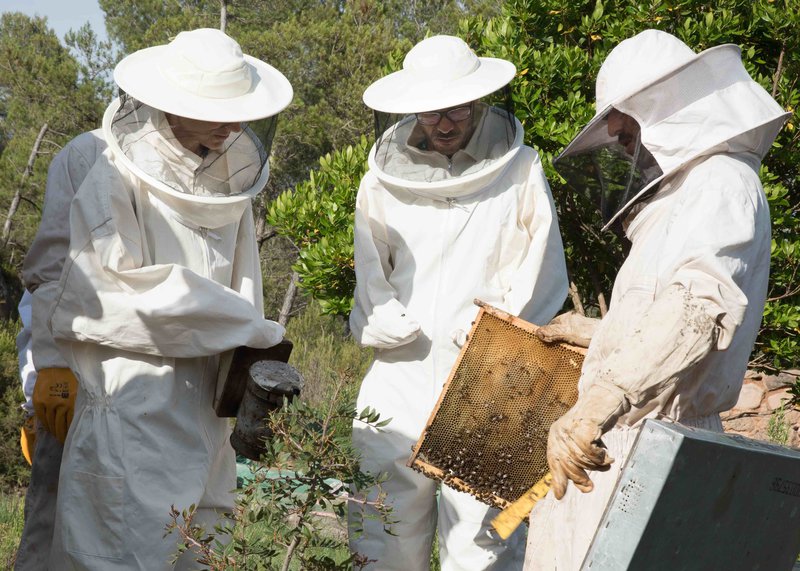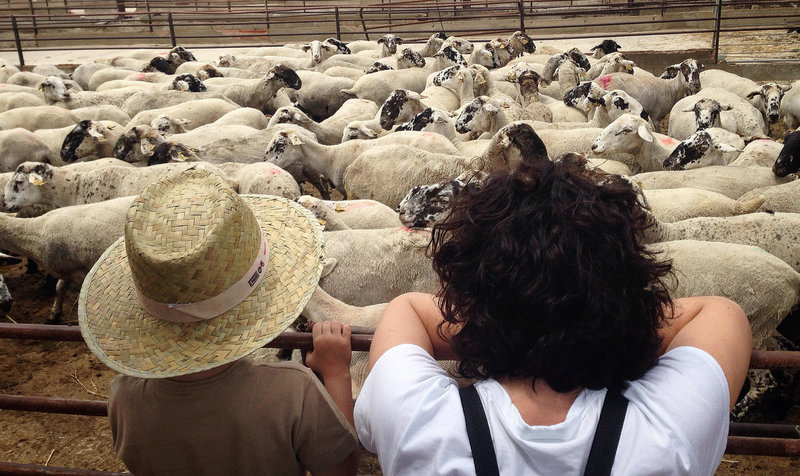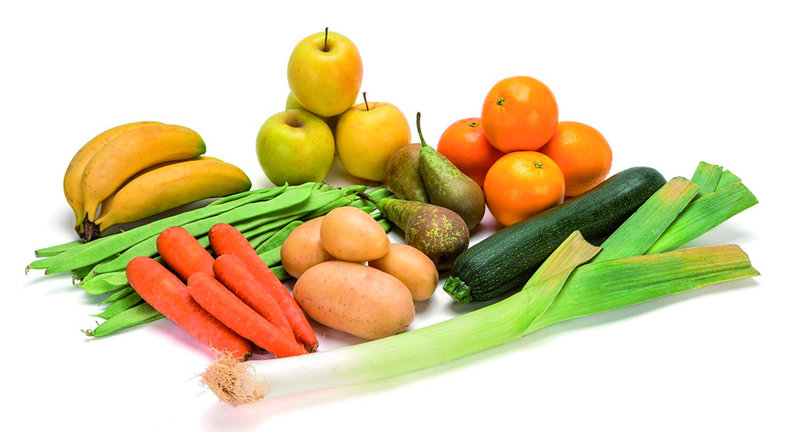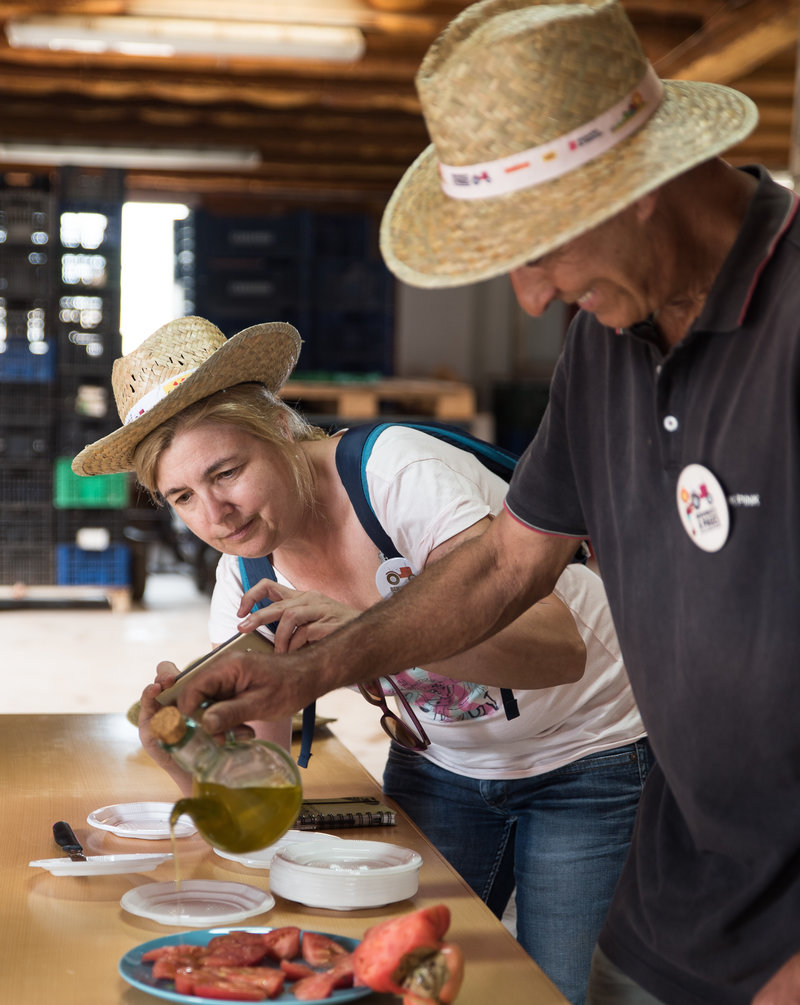A farmer for a day
Picking fruit or vegetables or feeding livestock is becoming something of a tourist attraction thanks to the ‘Benvinguts a pagès’ initiative, which allows visitors to experience rural life and is now celebrating its fourth anniversary
Milk is not produced inside a carton, meat does not come on plastic trays, eggs are not made in boxes and carrots grow below ground. These are truths we all know, but many people have never personally witnessed the processes these natural products undergo before they reach the shops.
For many people who live in towns and cities, and especially children, the ways of the rural world might as well be from another planet. Joking aside, country life is an enigma to many, although one project that the agriculture department began in 2016 aims to allow people to discover how people in rural communities make a living. ’Benvinguts a pagès’ (Welcome to farming) is the name of the initiative that was set up with the Catalan tourism agency, the Alícia Foundation, and local authorities and tourist offices as well as associations across Catalonia. The project involves a weekend, this year on June 1 and 2, in which 190 farms, livestock companies and fisheries open up their doors to show people how they go about the work of preparing products for sale. At the same time, over that weekend, visitors have the chance to take part in a number of activities, such as sightseeing, food itineraries and visits to local nature and heritage sites.
“It’s a chance to get a different experience firsthand, in an informal, family atmosphere, allowing people to learn about something that is relevant to them but largely unknown,” says David Font, the head of the Catalan tourism agency. Font stresses that ’Benvinguts a pagès’ has proven to be a success; it “has been very well received by its participants and has grown exponentially.”
The figures bear this out, as over 55,000 people have taken part in the initiative in its past three editions, and while visitors highlight different aspects of the experience, they all agree that learning to value rural life “is necessary”.
The initiative offers great variety based on the agricultural product, whether it be rice or other cereals, eggs and poultry, drinks, meat, fresh fruit, dairy, and many others. At Mas Mercè - Làctics Perelada, one of the facilities that has been part of the ’Benvinguts a pagès’ project since its first edition, the majority of people wanting to visit are families. “Apart from that weekend we also organise visits all year round, and activities like feeding baby lambs with a baby’s bottle or herding livestock are very well liked by visitors,” says Jordi Claparols, head of visits at this business in Siurana in the Alt Empordà region.
Martí Marginet, the owner of Casa La Canal in La Nou del Berguedà, says his company is taking part this year for the first time, although it did work on the project last year with another member of Berguedà’s Cooperative of Livestock Breeders. “The slaughtering of animals for meat is one area that people need to be educated about, especially youngsters, who feel an immediate attraction for the calves,” he says, arguing that the lack of knowledge of what happens in farming “could be solved with more information imparted in schools.” Marginet says he understands the lack of awareness of what rural life entails among those who visit La Canal. “I recall one person who couldn’t tell the difference between a cow and a bull, but fortunately there aren’t many people like that,” he adds.
In the south, in the Baix Ebre region, the family organic business Horta de la Carme is excited about opening its doors to the public. “It’s a fun day and an ideal opportunity to explain what we do to people who are not in any way used to it,” says Martí Martí, who was hoping to attract not only local people but people from all over Catalonia “who want a different kind of weekend and who want to learn.”
Nevertheless, there are those who are critical of an experience that does not reach everywhere in the country. Eli Plancheria, from the Parc de les Olors in Claverol, where they grow aromatic plants, regrets the fact that counties like Pallars Jussà “get very few people, perhaps because of a lack of promotion of what we offer.” The difficulties of physically getting there is also a problem. This year, according to the project’s website, businesses from everywhere in Catalonia have signed up, with the exception of those in Val d’Aran, Baix Penedès and Solsonès. The largest number are in the Vallès Occidental area, where there are 11, while in Montsià there is only one.
feature
No pigs this year
This year there is no chance to visit any business breeding pigs. The agriculture department has restricted access to facilities breeding pigs as part of the protection measures to prevent the African swine fever virus from establishing a foothold in Catalonia. The virus causes a haemorrhagic fever with high mortality rates in domestic pigs; some isolates can cause death of animals as quickly as a week after infection. So far in western Europe the disease has only been detected among wild boars in southern Belgium, but the authorities are on the guard to prevent it spreading.










